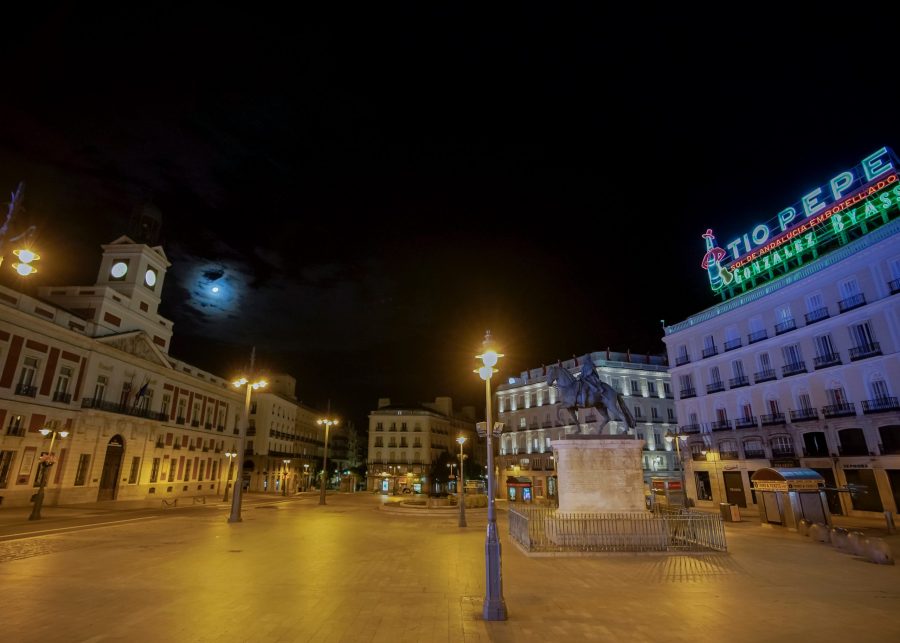MADRID – Spain currently finds itself in the peak of the third wave. In the midst of a peak with a record number of infections over the weekend, the central and the autonomous governments are clashing over vaccine and curfew.
Several communities opposed the decision of the Ministry of Health to change the criteria for the distribution of the Pfizer vaccine. Regional presidents are protesting; Isabel Díaz Ayuso of the Madrid region calls it an ‘absolute mistake’ and Iñigo Urkullu of the Basque Country thinks it is ‘unfair’.
Curfew times
According to newspaper El Español, the situation is grim with over 35,000 new infections registered last Saturday. Castilla y Leon decided, due to the large number of infections, to advance the curfew to 20.00 hours. This is contrary to the government’s decree that allows restrictions on movement only between 10 p.m. and 7 a.m. All restrictions outside these established hours are null and void and not covered by the legal provisions of the decree, which remains in force until the 9th of May. The central government has asked the Public Prosecutor’s Office to object Castile and Leon’s decision to bring forward the curfew in the region to 8pm.
Follow curfew phrasing to the letter
The government of Castile and Leon, led by Alfonso Fernández Mañueco (Partido Popular), clings to a literal phrase from the current decree of the State of Alarm, which talks about the power of the autonomous regions to shape the restrictions during ‘night hours’.
The Andalucian regional government of Juanma Moreno also refers to this phrase. It wishes not only to bring forward the curfew by two hours, but also to place citizens under ‘house arrest’ in the 91 Andalusian municipalities that have more than 1,000 infections per 100,000 inhabitants. Galician regional president, Alberto Núñez Feijóo, supported his colleagues. He described the request for tighter restrictions as ‘reasonable’. He went even further, defending a curfew from 6pm onwards, as in France. “That is reasonable, but at the moment we can’t do anything with this because the central government won’t give us permission.”
Political game
In the government residence Moncloa, they believe the pressure from the sub-regions is a reaction to a political move by the conservative Partido Popular. It wants to force Prime Minister Pedro Sánchez to appear before Congress to approve a new decree for the State of Alarm. The very idea terrifies the central government. The support of pro-secession Catalan parties is now even more valuable because of the recent appointment of Salvador Illa as list leader of the Partido Socialista Catalan (PSC) and as a candidate for the regional premiership.
To avoid complications and tense negotiations, Sánchez has been forced to veto bringing forward the curfew in order to prevent a new decree. Meanwhile, the Partido Popular is exerting pressure on the coalition government from the sub-regions where they hold power.
Most uncertainty in Castile and Leon
The situation of uncertainty is greatest in Castile and Leon. The police unions there expressed ‘doubts’ about the validity of the early curfew and asked the government delegation for written orders.
In practice, as in previous similar situations with restrictive measures, the enforcement agencies have started warning citizens to go home. In the coming days, it should become clear whether or not to impose sanctions. Meanwhile, the number of infections in Castile and Leon continues to rise at 860 cases per hundred thousand inhabitants. 17.65% of people tested positive. It proves that co-regulation with the central government does not work. The gap between Pedro Sanchez’s left-wing government and the autonomous communities governed by the right-wing Partido Popular is clear. And it comes at the worst possible time.


